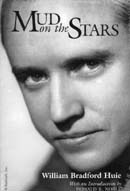What do you think?
Rate this book


376 pages, Paperback
First published December 1, 1954
To the Roosevelt generation of Americans; to the modern children of confusion; to the fellows who, at the end of an era of cynicism, were forced suddenly to stand in their tracks and die for the proposition that men are noble creatures, worthy to be free, this story is dedicated.
[i]n presenting Garth LaFavor as he is, I have had to risk offending those who will resent some of his statements and beliefs, and the statements and beliefs of some of those he met along his way….
I have risked handling many hot irons in this story, not because of any desire to be sensational…. I had handled these hot irons because I am afraid of the developing tendency to take the Short View….
If we pretend that the Enemy is only in Europe or Asia and not also within our own borders and within our own selves, we shall fall short of the larger victory.